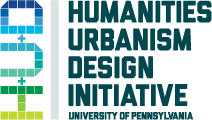Spring 2021
Description:
For more than a century, scholars of modern industrial cities have deliberated over how to both fix the city as an object of analysis, and yet make legible the immense processes of transformation in cities. This course treads through this conundrum by exploring how cities are constituted through the production, consumption, management, disposal, and movement of waste. Through the course of the semester, we are going to locate the urban in the forms, flows and futures of wasting. Thus we will reflect on the city as a space that not only produces and consumes valuable matter, but also as one that generates ambiguous matter, such as waste, that is at once stripped off its value and valuable. By triangulating readings from anthropology, geography, history and literature, in this course we will reconceptualize urbanity and urban citizens by considering how the collective life of the city is constituted in and through residents’ relationship to waste. We will pay attention to the differential responsibilities and effects of wasting the city while also poisoning the bodies that reside within it. We will look at waste as political and social matter. In doing so, we will rethink both the contours and the hierarchies of political communities. Thus, this course will explore the inflection of waste and practices of wasting through race, gender, sexuality, class and nationality, among other cultural markers. The course will begin by paying attention to where the city exists and who constitute the city by reading foundational texts such as De Certeau’s “Walking in the City” in conversation with Parsons’ “Re-envisioning the urban walker.” We will then consider what materials, subjectivities, and sensory attunements constitute waste in the city, and move on to examining topics such as “Waste work in the city,” “Toxic-city,” “Waste city affects,” “Clean(s)ing the City,” “Colonial routes of wasting,” “Refusal,” and finally, “Waste Futures.” Readings will include Zygmunt Bauman,Mary Douglas, Rosalind Fredericks, Vinay Gidwani,MaxLiboiron,Martin Melosi, Katherine Millar, Robin Nagle, Joshua Reno, John Scanlan, and Nicholas Shapiro, among others.
Instructor:
Dr. Syantani Chatterjee, Mellon Junior Fellow in Humanities, Urbanism, and Design
Day/Time:
Tuesdays, 1-4PM
